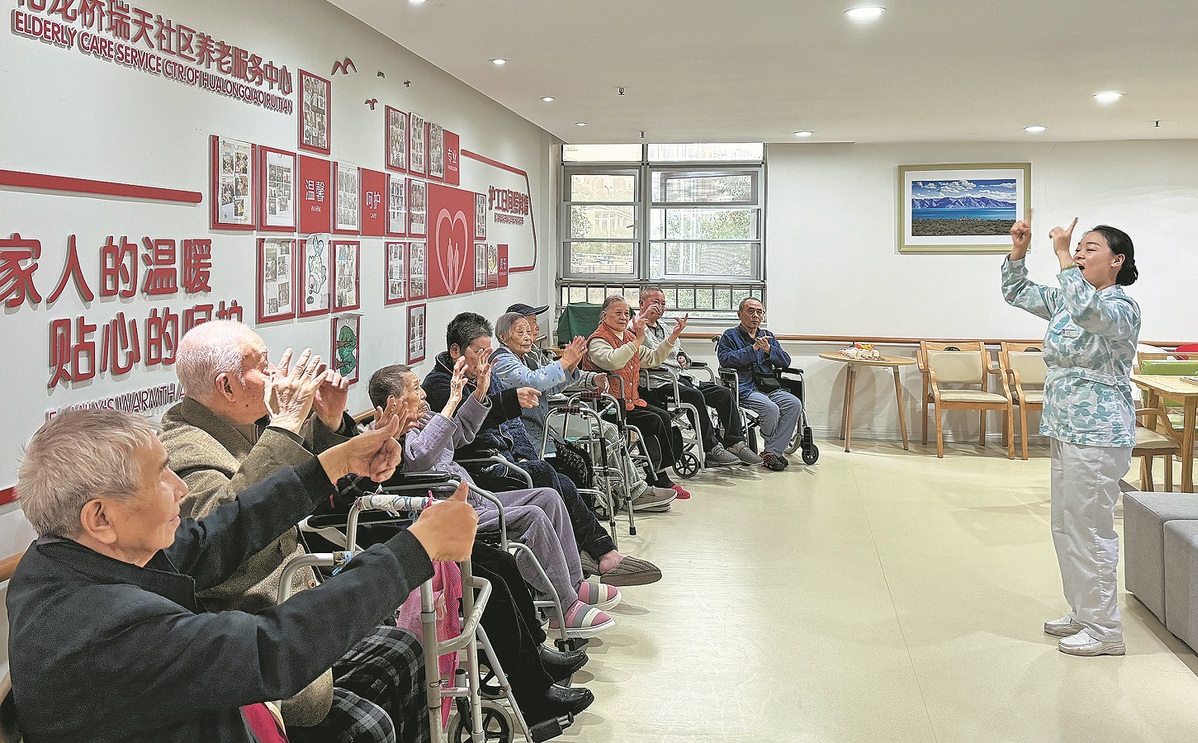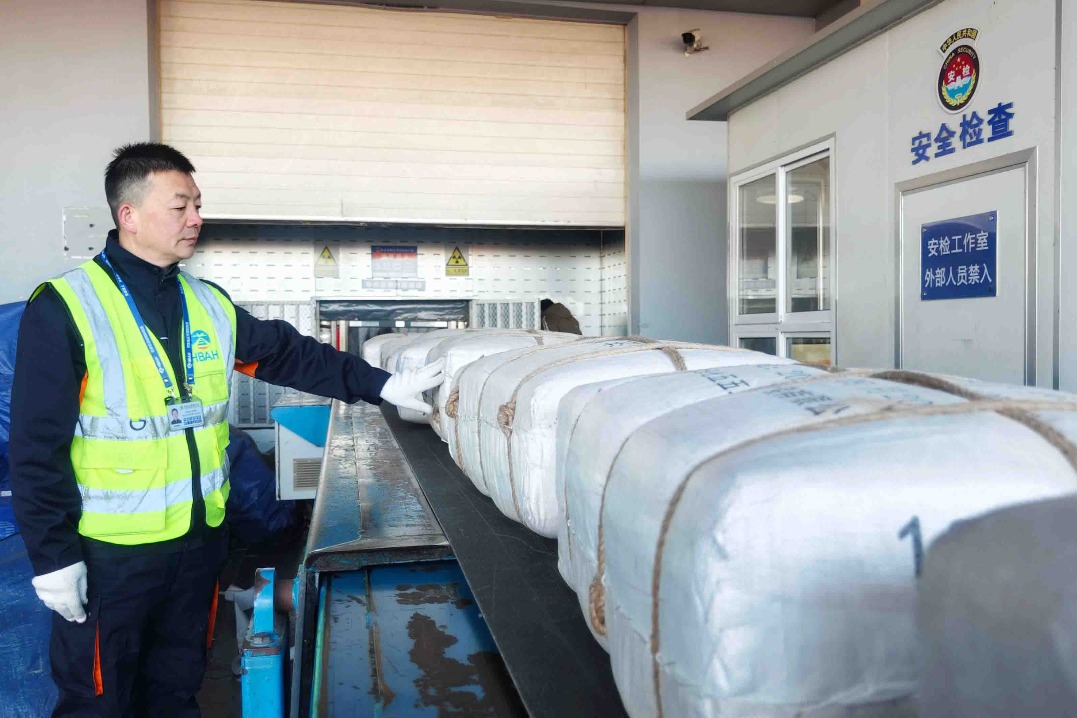Guideline aims at improving elderly services


China will enrich services for the elderly, boosting the silver economy and cultivating more talent for the sector in the next 10 years, as part of a move to better cope with the aging population and improve the quality of life for seniors.
The Communist Party of China Central Committee and the State Council, China's Cabinet, recently released a guideline stating that the nation aims to build up a solid services system for the elderly by 2029.
The guideline also said that the services will be better matched with the needs of seniors by 2035. Furthermore, all elderly people will have access to basic elderly care services, as the nation will form a well-established elderly care service system by 2035, it said.
The elderly services system will prioritize services for those who have lost self-care ability, and will bring inclusive, fair and sustainable services to more elderly in urban as well as rural areas.
Tang Chengpei, vice-minister of civil affairs, said at a news conference in Beijing on Thursday that optimizing elderly services is not only a key step in the nation's response to the aging population, but will also improve seniors' quality of life.
The guideline urges governments at all levels to include the development of elderly care services in their plans for vitalizing rural areas, and it emphasizes that more efforts are needed to improve care for elderly rural residents, especially those of advanced age and those who cannot take care of themselves or have disabilities.
The guideline encourages governments at all levels to set up talent evaluation systems and regulations for professions related to the elderly services sector. Vocational schools are encouraged to set up pilot education programs to cultivate the needed talent.
According to the guideline, the central authorities encourage companies to develop and promote products for the elderly, either high-tech electrical appliances or tourism products, and enrich services to the elderly, aiming for a prosperous silver economy.
In addition, the nation will channel resources and investment into technological programs for elderly care services, such as humanoid robots and artificial intelligence.
"The elderly, especially those born after 1960, have increasing willingness and ability to consume products and services," said Liu Ming, an official of the National Development and Reform Commission, at the news conference.
"The elderly have more modern consumption views and habits, more similar to those of the younger generations," Liu added. "In turn, the booming silver economy can spur companies or research institutes to create more products and services for the elderly."
China has channeled increasing investment and efforts into the elderly services sector in recent years. According to a report released by the Ministry of Civil Affairs last year, China's elderly population — people age 60 and older — accounted for more than one-fifth of the nation's total population in 2023.
From 2019 to 2024, the nation's fiscal expenditures on elderly services and benefits totaled more than 560 billion yuan ($76.4 billion), with annual funding growth of 11 percent over the five years, according to the Ministry of Finance.
The nation has also improved the professional recognition and management of the elderly service sector. The Ministry of Human Resources and Social Security said it has guided some vocational schools to set up disciplines on rehabilitation, social care and healthcare in recent years, and to include new related professions in the State-level professions dictionary to raise public awareness of and respect for workers in the elderly services sector.
- Nanjing Massacre survivor dies, leaving only 31 registered survivors
- Guideline aims at improving elderly services
- Respiratory infections trend within expected range
- Quake-hit Dingri county residents provided with hot meals, clothing and shelter
- Students' arduous trek replaced by canyon cable car
- Top court urges tough stance on rural organized crime





































